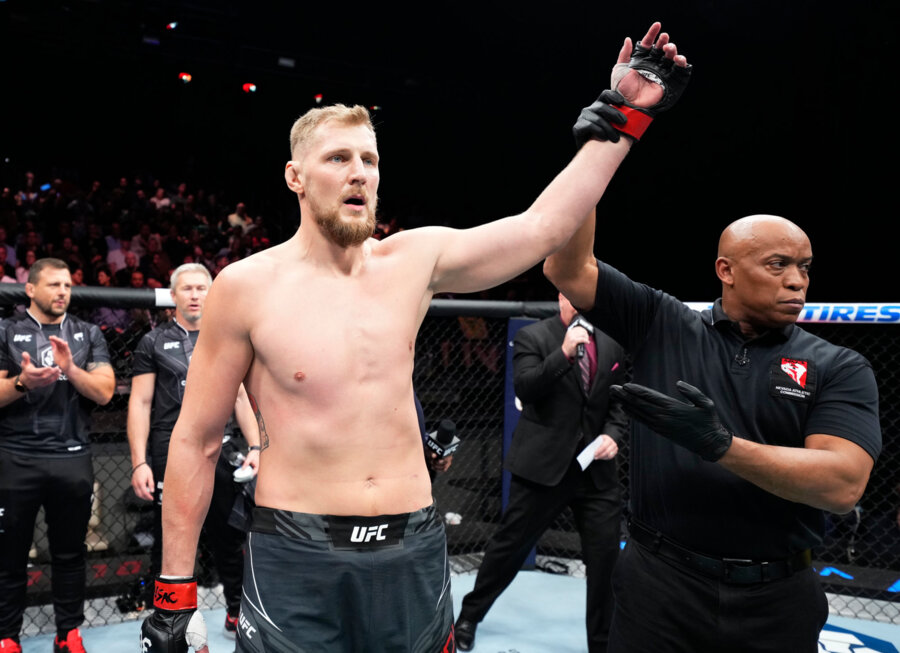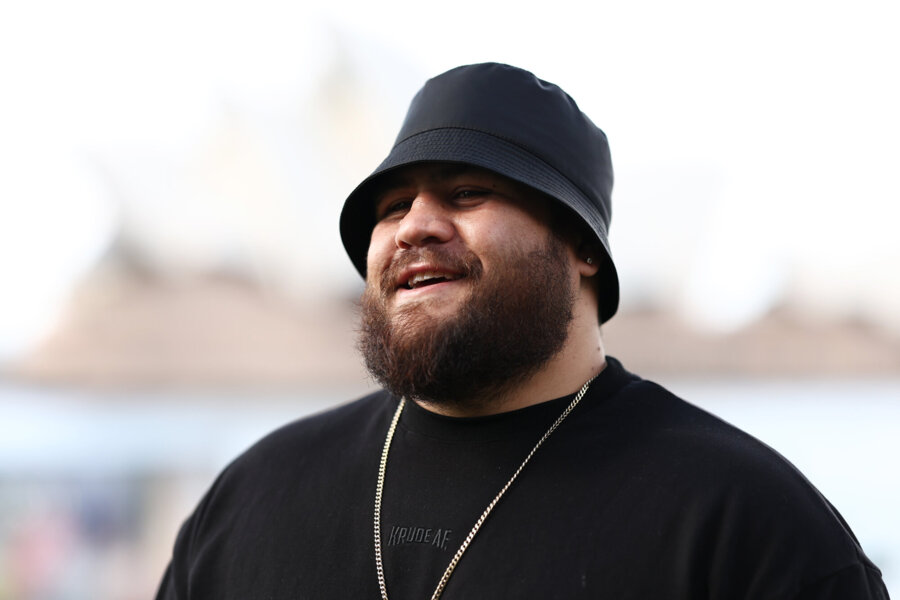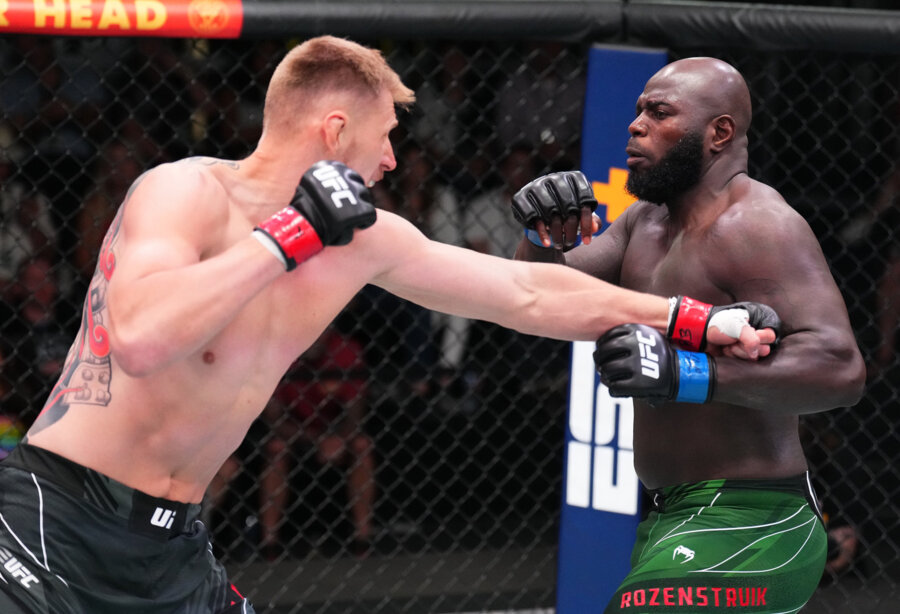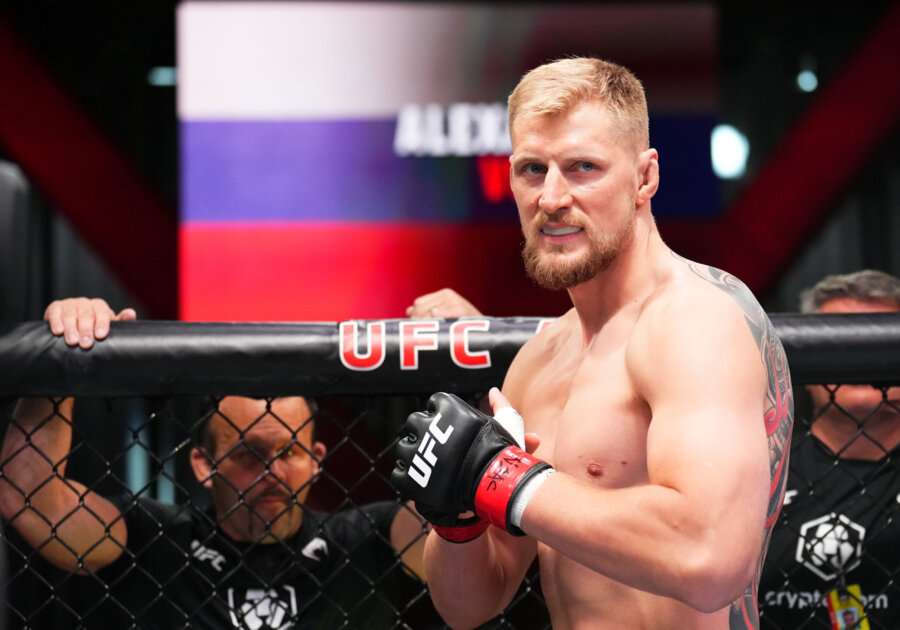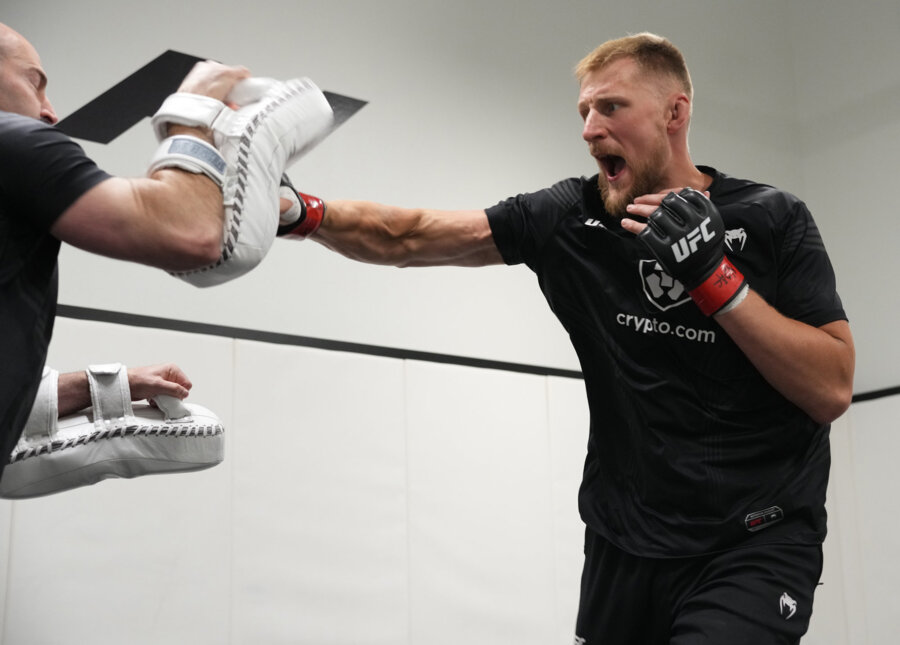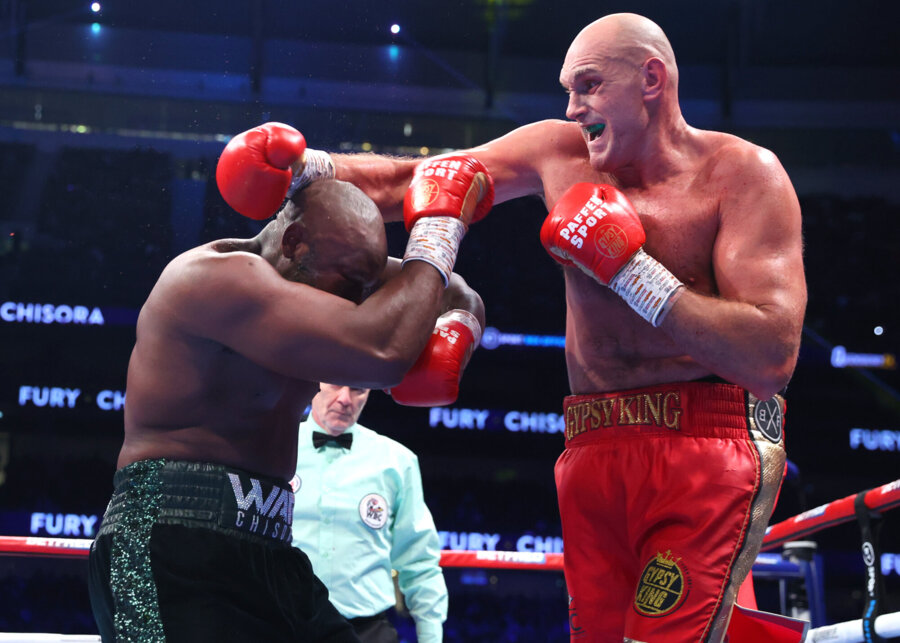Alexander Volkov left the United States for Australia on August 20 to complete preparations for the fight against local athlete Tai Tuivasa on September 9. Tuivasa is a smiling heavyweight, overweight and very heavy-handed. In two of the last three fights, Tuivasa has injured the heavyweights who defeated Volkov: Derrick Lewis and Cyril Gan (Gan Tuivasa lost, but knocked down during the fight. – About “”). Volkov has been training in the United States for almost a year and the victory over Tuivasa could be his third straight, which will put him in the title hunt, despite the intensified competition in the heavyweight division.
So far, the situation in the rankings is amazing: Volkov is in seventh place, but with two wins in the last fights, Tuivasa is in sixth place, despite losses to Gan and Pavlovich. Six days before the fight, Volkov said:
– You said that in May you found out when and with whom the fight will take place. Did you have a long preparation?
– I have been preparing for this fight for almost five months, because since the last tournament I practically did not take a break and immediately returned to the gym. True, he changed his location and moved from Los Angeles to Las Vegas. Now everything is a bit new, but I immediately started to get involved, to prepare, to train. Somewhere in early May, I discovered my opponent, started to prepare more precisely and flew here 2.5 weeks before the fight. I managed to acclimatize, everything is almost perfect.
Why did you move to Vegas?
We moved with our family. For a while we lived in Los Angeles, where I had more friends and acquaintances, there were venues where I came. But for the last fight with Romanov, I went to Las Vegas, did a bit of testing, looked at what gyms there were, and decided to go to Vegas to train. There are now more heavyweights there and the training conditions are quite good. They helped me at UFC PI with physical training, nutrition, and recovery support from some sort of microtrauma.
Who did you train with?
– I trained with a team that moved to different rooms, there was a lot of weight, there were a lot of Samoans, and they were guys of the same size, of the same origin as Tuivasa. And we have worked very hard and well all these months.
– When was your last training session?
“There are about two and a half weeks before leaving. with the Samoans. One of them is planning to be selected in the New Zealand boxing team for the next Olympic Games. In other words, his level of striking is very good, there were guys with black belts in BJJ.
– Did you have at least one knockdown during this training?
– I didn’t have any knockdowns in this training, but there were some heavy boxing fights. I came to the gym specifically for the pro boxers, a guy, Patrick Mailata (6-2 in pro boxing. – About “”), had a pro fight, and he also needed guys my size, and I was with him only on boxing, him. There were no knockdowns, but there were some good hits. He broke my nose, there were other blows I felt on myself, but I didn’t get any blows before a knockdown.
– So it was planned that you would not have sparring in Australia?
– Yes, I have been preparing for this fight for almost five months. And we can say that I even exhaled, that I have now completed contact training in the form in which they were. I can say that I was happy that I managed to fly away and take a break. Here I train on the legs with Taras Kiyashko, we maintained the strength, prepared the rhythm, we fought a lot with Misha. I don’t think the absence of sparring in the last two weeks will affect the preparation in any way.
– Tuivasa knocked down Cyril Gan and quickly lost to Sergei Pavlovich. Did you get anything out of those fights?
– In general, I am neither Pavlovich nor Gan, my manner is slightly different, although closer to Gan, but I probably work harder, more accented. And he is a little lighter and changes position more often. Even if I rely on some of my strengths anyway, it might not just be a position.
– Do you understand what time you will fight in local time?
— I leave the hotel at 10:30. Around 1 or 1:30 p.m., I will fight. But as soon as we arrived, we tried to organize training around 1 p.m., to adjust the schedule, so I don’t think I will have any problems.
– Does this affect everything you fight in the opponent’s territory?
– It’s hard to say, because so far everyone I meet in Australia is very friendly, very friendly, many people are interested in sports, many offer to take a picture. In general, people are friendly and seem more supportive of a good fight than one of the participants.
— Your sparring partner Sergei Spivak fought Gan in the last tournament. Were you surprised that it came under the direction of Nadezhda Kadysheva?
I just missed the exit and didn’t see it. I don’t think that would surprise me. Sergey is a more traditional person in his views, maybe he is still looking for himself.
– And you will have the same song – 25/17 “Mom, we are all seriously ill”?
Yes, I have already made my decision.
– Can you tell me who will be in your area, has everyone managed to get a visa?
– There will definitely be Taras Kiyashko and Mikhail Zayats (24-8 in MMA. – Approximately “”). My manager Ivan Bannikov also wanted to fly, but he has to get a visa for Australia next week. Whether it works or not, we’ll see, but if it works, he’ll be around too.
– Your physical training trainer Vasily Volkov called the mass of body fat ballast. Looking at Tai Tuivasu, can you tell that he has pounds that would be more worth shedding?
– It’s hard to say, he’s Samoan, like the guys I trained with. New Zealanders, Samoans, they’re such big, textured guys, maybe their weight helps them. Yes, we can say that he is overweight, that he is a fatty layer, but here you have to look at what style of work he has. He is probably [вес] and helps him make his punches harder. If you try it yourself, imagine that with a height of two meters I would be just as big, it would be hard for me. In principle, I feel less comfortable with being overweight. I think Samoans are like that by nature.
– Your physical training now looks very American. At the same time, your trainer in Russia, who we mentioned above, might be a little ironic about this approach, when there are a lot of different exercises and the trainer shouts beautifully at the camera: ” Go ahead, Alex. “How did you get here?
– I ended up at UFC PI (the UFC fighter development center in Las Vegas. – About “”) and at some point I had to trust one of the coaches, just to update and confirm my knowledge. And I decided to train for a month and a half and see what happens. I worked, I felt better results. It was very comfortable to work with Gavin, training was varied, but, on the whole, we do the same as with Vasily Vasilyevich (Volkov, coach in Russia. – About “”), the difference is just in the exercises, in ingenuity. But the principles are the same, except maybe there’s a bit more variety in the exercises. Also, Gavin has worked a lot with the fighters, there’s a lot of flow through him, maybe they’ve picked special drills that work well in MMA. It looks like a lot has changed on the outside, but deep down everything is the same. And what he encourages during training is probably such an American mentality: they like to motivate emotionally during training.
– Can you promise the Russian fans that no matter how this fight ends, you won’t be drinking out of sneakers (a popular celebration of victory among Australian and New Zealand fighters. – About “”)?
– Oh, well, that’s 100%. I can only drink from a glass or a can if I can, but certainly not from a sneaker. I’ve talked to Australians about it. From what I understand this tradition comes from a local racing driver who did this, it’s not an old Australian tradition so even Australians themselves don’t understand everything. It looks cool on TV, but not everyone would do that.
– Have you ever thought about how your kickboxing fight against Tyson Fury would have gone (undefeated heavyweight boxer, world champion, according to WBC. – About “”)?
– No offense, but overall if you fight with me in kickboxing and I work with my legs, it will be much easier for me. Any clean boxer will take a long time to learn how to react, and getting kicked is a different kind of pain. It will be difficult for them to defend themselves and react. So it seems to me that if a boxer is fighting against a kickboxer, the latter has a much better chance. I think Tyson Fury in kickboxing wouldn’t have stood a chance against me.
– And if you argued in the street? Let’s say Tyson Fury insulted Bauman graduates.
– It’s probably amazing. Especially if you still know me and he would hardly have fought for free. If all of a sudden I had a street conflict, and I figured out that I have an advantage in the fight or the clinch, I would really try to transfer, tighten it up, make the second person cannot attack. It would help both of us stay healthy. If you suddenly imagine that I am going to fight with a boxer like Tyson Fury, then I will honestly say that on the street it depends a lot on the circumstances, it can even be just who will strike first. If he strikes first and strikes, maybe I won’t stand a chance.
Live broadcasts of the Mixed Martial Arts tournaments can be seen on and Match! Fighter”, as well as on the sites matchtv.ru and sportbox.ru.
Source : MatchTV
I am Ashley Ortiz and I am a professional journalist working for Athletistic. My specialty is in sports journalism, particularly boxing. I have written articles for some of the most renowned publications on the subject, and my work has been featured across both print and digital media platforms.

